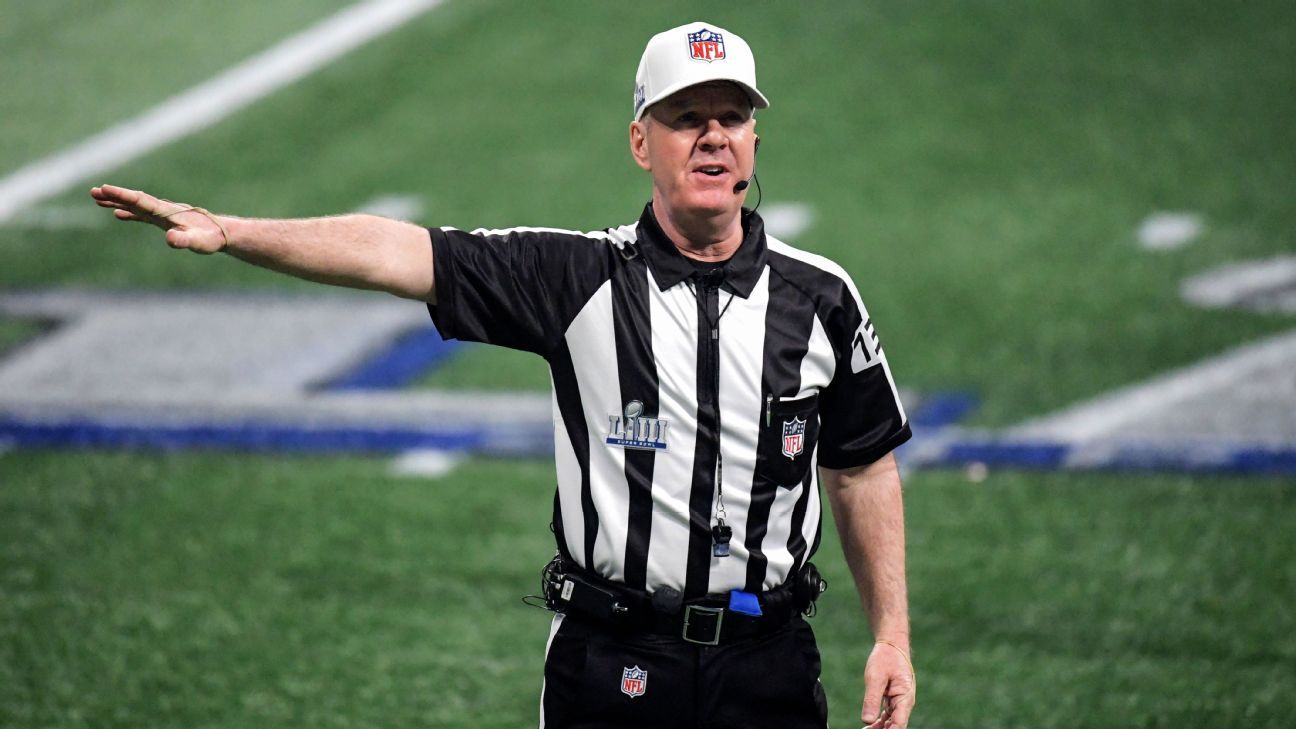Holding calls plummet after call to referees - 2 minutes read

Holding penalties in the NFL plummeted Sunday following a conference call between senior vice president of officiating Al Riveron and referees.
Officials threw 41 flags for offensive holding in 14 games Sunday, an average of 2.9 per game, according to ESPN Stats & Information. In the first 33 games of the season, there were 188 such flags -- a rate of 5.7 per game.
It is not unusual for Riveron to hold conference calls with referees during the season, and he addressed multiple topics Saturday night. But the focus of the call was offensive holding, a narrow point of emphasis for 2019 that had morphed into a more significant issue.
The final straw was last Thursday's game between the Tennessee Titans and Jacksonville Jaguars, during which referee Shawn Hochuli's crew threw 10 flags for offensive holding alone. New England Patriots quarterback Tom Brady tweeted that he had turned off the game because he couldn't watch the "ridiculous penalties."
This summer, the NFL asked officials to focus on a technique sometimes referred to as a "lobster block," when an offensive lineman wraps his arms around a defender while blocking on the backside of running plays. As it turned out, they increased their focus on holding all over the field.
During the first two weeks of the season, they threw 178 flags for offensive holding -- a 66% increase from the same time period in 2018. The spike also contributed to a 16.2% increase in total penalties compared to Weeks 1-2 of last season, as well as a slight drop in scoring from 21.97 offensive points per game in 2018 to 20.9 in 2019.
During Saturday's call, Riveron instructed referees to continue emphasizing the need for offensive linemen to immediately move their blocks inside the frame of the defender if they initiate the block outside. But on front-side and other blocks, Riveron counseled them to allow for more time to get inside the frame.
Riveron's effort followed the traditional trend for points of emphasis, which usually lead to a surge in calls during the preseason and the early part of the regular season. In some cases, coaches and players adjust as the flag rate flattens out. In other cases, the NFL officiating office or the competition committee steps in to mandate an adjustment.